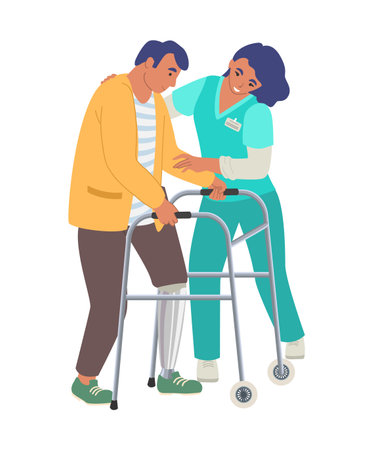1. Understanding the Landscape: Substance Use Among Indian Youth
Substance use and addiction among young people in India has become a significant concern for families, communities, and policymakers alike. In recent years, there has been an observable rise in the consumption of substances such as alcohol, tobacco, cannabis, and even pharmaceutical drugs among Indian youth. This trend is not uniform across the nation; regional differences play a crucial role in shaping the patterns of substance use. For instance, states like Punjab have reported higher incidences of opioid use, whereas metropolitan cities such as Mumbai and Delhi often witness increased recreational drug consumption due to urban pressures and lifestyle changes.
Socio-economic factors deeply influence this scenario. Youngsters from economically challenged backgrounds may be more vulnerable to substance abuse due to lack of access to education, employment opportunities, or supportive family environments. Conversely, youth from affluent backgrounds are sometimes exposed to different forms of addiction linked to social gatherings and peer expectations. The presence of peer culture cannot be underestimated—friends and acquaintances often act as gateways or deterrents to initial substance use. With social media and modern influences, traditional family structures are also being tested, sometimes leading to gaps in communication between generations regarding these sensitive issues.
Understanding this landscape is essential for designing effective educational and workshop programmes that are culturally relevant and regionally tailored. By acknowledging these diverse influences and challenges faced by Indian youth, interventions can be crafted to resonate with their lived realities, laying a strong foundation for prevention and rehabilitation efforts.
Cultural Perspectives on Addiction and Stigma
In the diverse and vibrant society of India, cultural perspectives play a significant role in shaping attitudes toward addiction, especially among youth. Understanding these perspectives is essential for designing effective educational and workshop programmes that resonate with Indian values and realities.
Traditional Indian Family Values
The Indian family system, deeply rooted in respect, unity, and collective responsibility, often acts as the first line of support for young people. Families traditionally believe in guiding children through moral teachings and discipline. However, when it comes to addiction, there is a tendency to view it as a personal failing rather than a health issue. This mindset sometimes leads families to keep struggles with addiction private, fearing loss of reputation or social standing within their community.
Community Perceptions: Collective Identity and Social Norms
Communities across India, whether urban or rural, maintain strong social bonds and uphold shared values. While this sense of belonging can offer support during recovery, it can also reinforce stigma if addiction is seen as shameful or taboo. Community leaders and elders often influence public opinion, which can either help or hinder awareness efforts. In some regions, traditional practices may even prioritize alternative remedies or spiritual healing over modern therapeutic interventions.
Impact of Social Stigma on Addiction and Recovery Among Youth
Social stigma remains one of the most formidable barriers to addressing addiction among Indian youth. Many young people fear judgment from peers, educators, and neighbors, resulting in reluctance to seek help. Educational programmes must be mindful of this reality and strive to create safe spaces where youth can discuss their challenges openly without fear of discrimination.
| Aspect | Positive Influence | Challenges |
|---|---|---|
| Family Support | Moral guidance, emotional backing | Pressure to hide addiction due to shame |
| Community Involvement | Potential for collective action & support groups | Perpetuation of stigma; resistance to change |
| Cultural Beliefs | Encouragement towards healthy lifestyle choices | Skepticism towards scientific treatment approaches |
To make educational and workshop programmes truly effective in India, it is crucial for facilitators to acknowledge these cultural dynamics. By involving families and communities in awareness activities and addressing stigma directly through culturally sensitive dialogues, such initiatives can foster greater acceptance and empower youth on their path to recovery.

3. Holistic Educational Approaches: Integrating Mind, Body, and Spirit
In India, the journey to recovery for youth facing addiction is most effective when it honours the deep-rooted philosophies of holistic well-being. Educational and workshop programmes are increasingly embracing approaches that go beyond academic learning, merging traditional Indian wisdom with modern therapeutic practices. This harmonious blend nurtures not only the intellect but also cares for the body and soul, recognising that true healing is multidimensional.
The Role of Yoga in Addiction Recovery
Yoga, as an ancient Indian practice, serves as a cornerstone in many educational interventions. Structured yoga sessions included in these programmes foster physical strength, balance, and flexibility—qualities that mirror the inner resilience needed to overcome addiction. Breathing techniques like pranayama are taught to help manage cravings and emotional turbulence. By introducing yoga as a daily discipline, young participants learn how to reconnect with their bodies and channel their energy towards positive transformation.
Meditation for Mental Clarity and Emotional Stability
Meditation is another vital element woven into these holistic curricula. Guided meditation practices support youth in cultivating mindfulness—a powerful tool for recognising triggers, managing stress, and nurturing self-compassion. Techniques such as Vipassana or mindfulness-based meditation are adapted to suit local contexts, often conducted in Hindi or regional languages to ensure accessibility. These sessions offer a sacred pause amidst lifes chaos, allowing young people to rediscover inner peace and clarity on their path to recovery.
Ayurveda: Ancient Wisdom for Modern Challenges
Ayurveda’s timeless principles provide a framework for restoring balance within the body and mind. Educational workshops introduce participants to Ayurvedic concepts such as doshas (body constitutions), personalised nutrition, herbal remedies, and lifestyle routines tailored to individual needs. This empowers youth to make informed choices about their health, harnessing age-old Indian knowledge to complement modern rehabilitation efforts. Simple rituals like drinking warm herbal teas or following dinacharya (daily routines) become acts of self-care that reinforce recovery goals.
Blending Tradition with Contemporary Education
Programmes that integrate these holistic practices alongside conventional education—such as life skills training, career guidance, and academic support—create an environment where youth feel valued and understood. By respecting cultural identities and spiritual beliefs, these initiatives honour the unique journey of each participant. The result is a nurturing space where mind, body, and spirit are all given equal attention, paving the way for sustainable wellness and lasting freedom from addiction.
4. Youth-Centric Workshops: Practical Skills and Peer Support
When addressing addiction among Indian youth, it is crucial to create workshops that resonate with their unique experiences and cultural backgrounds. Well-structured, youth-centric workshops not only impart essential life skills but also foster a sense of community through peer support networks. The goal is to offer practical tools and relatable examples that empower young people to cope with challenges in a healthy manner.
Designing Engaging, Culturally Relevant Workshops
Workshops should be interactive and participatory, incorporating activities like group discussions, role-plays, and storytelling rooted in Indian traditions. Facilitators may use Bollywood film clips or cricket analogies to make concepts more relatable. Recognising the diversity of languages and communities across India, materials should be available in regional languages such as Hindi, Tamil, Bengali, or Kannada whenever possible.
Key Components of Effective Youth Workshops
| Component | Description | Cultural Adaptation Example |
|---|---|---|
| Life Skills Training | Teaching decision-making, communication, and problem-solving skills. | Role-playing family scenarios common in Indian households. |
| Coping Mechanisms | Introducing stress management techniques such as meditation or yoga. | Incorporating pranayama or mindfulness rooted in Indian spiritual practices. |
| Peer Support Networks | Encouraging group sharing and collective goal setting. | Forming “Yuva Mandals” (youth groups) for ongoing mutual support. |
| Real-Life Stories | Sharing testimonials from recovered youth. | Inviting local influencers or ex-addicts to speak in familiar dialects. |
The Importance of Peer Support in Recovery
Youth battling addiction often feel isolated. Establishing peer support groups within workshops helps them realise they are not alone. These groups—sometimes called “Sangathans” or “Adda Circles”—create a safe space for open dialogue and mutual encouragement. Facilitators can train peer leaders (“Saathis”) who act as motivators and role models within their own communities.
Through thoughtfully designed, culturally sensitive workshops, Indian youth can learn not just to resist substance abuse but also to build resilience, nurture supportive relationships, and find hope for a healthier future together.
5. Family and Community Involvement
The Importance of Family Support
Within the Indian context, family is often considered the cornerstone of social life. When youth face challenges such as addiction, the support and understanding of their families can play a pivotal role in recovery. It is essential for families to stay informed about addiction, its causes, and its impact. Participating in educational workshops designed for parents and guardians allows them to gain practical tools to identify early warning signs and respond with empathy rather than judgement.
Creating a Nurturing Home Environment
Families can foster a nurturing atmosphere by practicing open communication and showing unconditional love. Simple gestures such as listening without interruption, offering encouragement, and avoiding harsh criticism help build trust. In India’s joint family system, elders and extended relatives can also contribute positively by setting examples of healthy coping mechanisms and supporting the youth’s journey towards recovery.
Community Engagement: The Extended Support System
Beyond the family, local communities—including schools, religious organizations, and neighbourhood groups—form an important support network. Community-led awareness drives and peer group discussions can break down the stigma associated with addiction. Villages and urban colonies alike can organise regular workshops that involve local leaders (such as Panchayat members or respected elders) to create safe spaces where young people feel accepted and understood.
Guidance for Families and Communities
To truly support youth battling addiction, it is crucial to shift from a punitive approach to one rooted in compassion. Educational programmes should include guidance for families on active listening skills, non-judgemental responses, and how to encourage positive behavioural changes without resorting to shame or blame. Community facilitators may be trained to mediate family dialogues and promote collective healing practices that align with local traditions—be it through storytelling circles or faith-based counselling sessions.
By coming together as compassionate allies, both families and communities across India can empower young people struggling with addiction to rediscover hope and resilience within a supportive environment tailored to their unique cultural values.
6. Collaboration with Local Institutions and NGOs
One of the most effective ways to support youth battling addiction in India is through close collaboration with local institutions and NGOs. Schools and colleges play a crucial role, as they are not only centers for learning but also safe spaces where young people spend much of their time. By partnering with educational institutions, awareness programs and workshops can be woven into daily routines, reaching students from diverse backgrounds. Furthermore, these partnerships enable early identification of at-risk youth and provide them with timely guidance.
NGOs, especially those focused on youth empowerment and health, bring invaluable expertise and grassroots connections. Their experience in community engagement allows for culturally sensitive approaches that resonate with local families. Faith-based organizations also hold a special place in Indian society; their involvement ensures that outreach efforts are respectful of traditional values while delivering hope and encouragement to those in need.
Such collaborations maximize the impact of educational and workshop programmes by pooling resources, sharing knowledge, and creating a supportive network. Joint initiatives can include skill-building sessions, mentorship opportunities, and continuous follow-up care—crucial elements for sustained recovery. Together, these alliances help break the stigma surrounding addiction and foster an environment where every young person feels valued and supported on their journey towards wellness.
Measuring Impact: Success Stories and Ongoing Assessment
Evaluating the effectiveness of educational and workshop programmes for youth battling addiction in India requires a thoughtful, ongoing approach. Progress tracking must be both systematic and sensitive to individual journeys. By weaving together traditional wisdom with modern assessment strategies, programmes can ensure that young participants receive meaningful support as they strive for recovery.
Strategies for Tracking Progress
Progress is not always linear, especially in the context of addiction recovery. Effective Indian programmes often rely on a combination of regular check-ins, self-assessment tools, and observation by mentors or facilitators. These tools are designed to be culturally relevant—using local languages, relatable scenarios, and community-based values—to make youth feel understood and supported. Attendance records, participation levels in group activities, and engagement in family sessions also serve as important indicators of progress.
Celebrating Small Wins
In the Indian cultural context, celebrating small victories holds great significance. Whether it’s staying sober for a week, participating actively in a discussion, or helping another peer, each step forward is acknowledged through positive reinforcement. Simple tokens like certificates, words of encouragement from elders, or sharing achievements during community gatherings help boost confidence and motivation among youth. These gestures foster a sense of belonging and reinforce that every effort counts.
Incorporating Feedback for Continual Improvement
The voices of participants, families, and educators play a pivotal role in shaping the programme’s future. Regular feedback sessions—sometimes conducted as open circles or through anonymous suggestion boxes—allow stakeholders to express concerns, share ideas, and highlight areas for improvement. Facilitators carefully consider this input, making necessary adjustments to curriculum content, session timings, or even introducing new modules relevant to emerging challenges faced by Indian youth.
This ongoing dialogue ensures that the programme remains dynamic and responsive to changing needs. Ultimately, measuring impact is not just about numbers—it’s about nurturing resilience, restoring hope, and building an empathetic support network around every young person striving for a brighter tomorrow.

